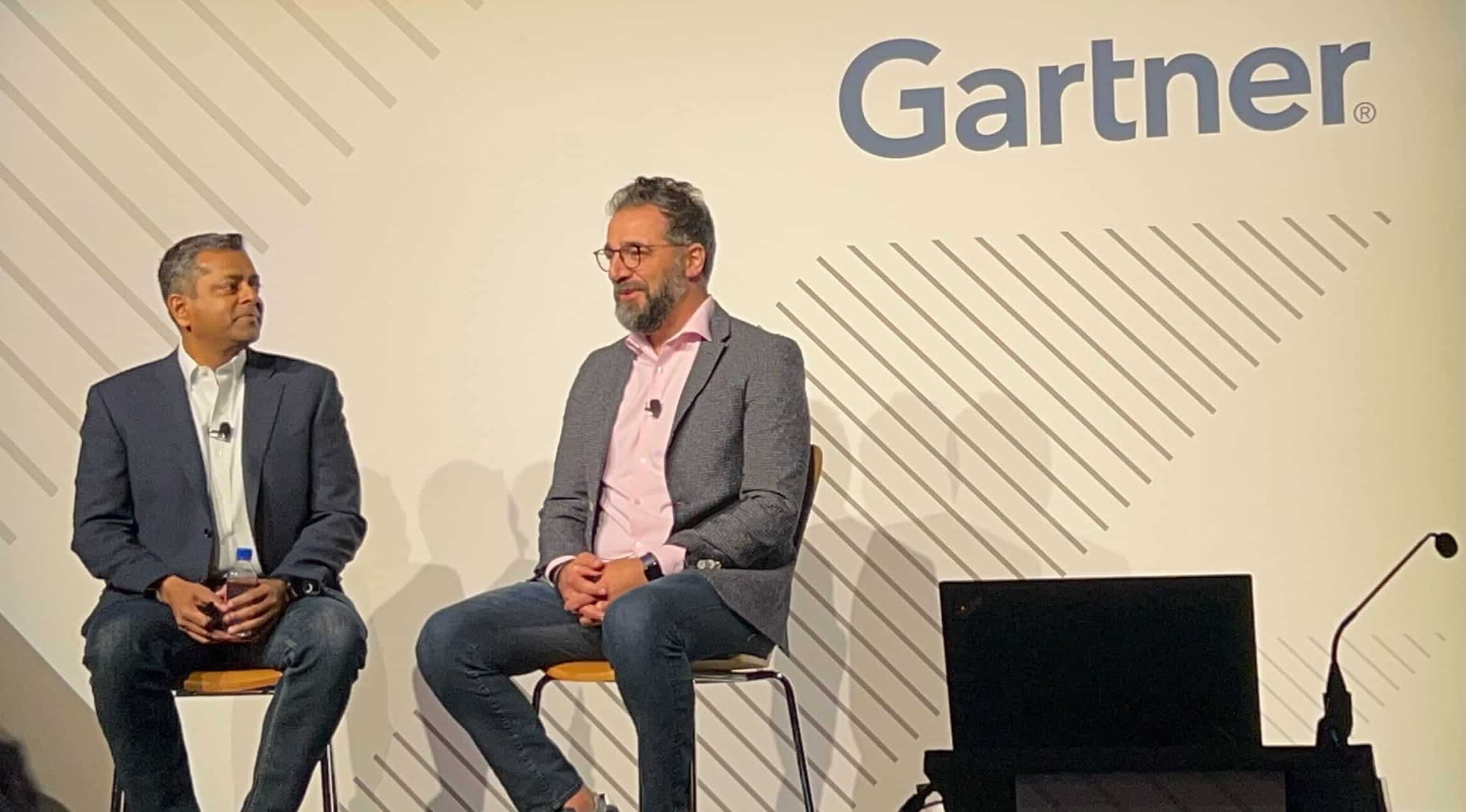Gartner Data & Analytics 2023: Living Uncomfortably in the Age of Data

Have we reached a tipping point when it comes to data? That was one of my takeaways from the recent Gartner Data and Analytics forum. Being surrounded by thousands of peers who share an interest in exploring the potential of data is always a truly enriching experience. This year’s discussions revealed that while we once celebrated the potential for data to transform enterprises at previous Gartner conferences, it has become evident that all that information comes with a lot of baggage. As always, Gartner was enlightening and inspiring. In addition to meeting so many peers, I shared the stage with Jad Abou-Maarouf, Chief Data Officer of Fulton Bank, pictured above. We discussed data challenges like these and how Fulton has improved its customer experience with some creative thinking.
Data has become more of a hindrance than a solution for many organizations. Instead of serving as a powerful tool for problem-solving, data has become a chronic source of frustration. In today’s digital-first age, where data should be every organization’s most valuable asset, it often becomes a liability. My conversations at the conference revealed that organizations are struggling to make sense of the overwhelming amounts of data they continue to collect. Unsurprisingly, a recent Gartner survey has identified a high demand for master data management (MDM) solutions. Modern MDM solutions can help tame the mess. However, despite the advancements and robustness of modern MDM technology, companies are grappling with challenges in implementing it, including finding skilled talent and managing the complexities of their information systems. Nevertheless, there is hope as MDM technology continues to evolve into the main data hub and a crucial component for enterprise data unification.
Here are my top takeaways from Gartner:
#1: Data governance, data quality, and MDM are converging. Organizations need all of these and increasingly, they need them to work together for simplification and efficiency. The convergence of data governance, data quality, and MDM is critical for organizations seeking to optimize their data management practices. By integrating data governance, data quality, and MDM, organizations can create a more holistic approach to data management that ensures data is accurate, reliable, and consistent. This can improve decision-making, enhance operational efficiency, and reduce risks associated with poor data quality.
Additionally, integrating these disciplines can help organizations achieve regulatory compliance and effectively manage their data assets.It can also promote collaboration across different departments and functions within the organization, helping to break down data silos and improve communication and coordination.
#2: Demand for data unification has increased, but a learning curve remains. A Gartner survey shared at the conference found that Gartner’s Chief Data and Analytics Officer (CDAO) survey found that the top two areas for increased investment in data and analytics are data management and data governance/MDM. For MDM vendors like Reltio, this is welcome news. There are three flavors of data unification – entity resolution for creating a unique ID for an entity across several systems, MDM for creating the “golden record” profile, and entity 360, which creates a holistic, immersive view of customers, products, and suppliers.
Large enterprises are working feverishly to implement solutions like these to ensure their data is unified, accurate, and trustworthy. Modern data unification solutions also integrate seamlessly with data quality, governance, and information architecture solutions that help deliver. We continue to find, however, that there remains a significant learning curve for today’s cloud-based, real-time MDM solutions and capabilities – specifically, how they unify all of the information across an enterprise and work in the context of the entire data management landscape.
#3: There is a noticeable shortage of MDM talent in the marketplace.
While there is strong demand for MDM, there is a noticeable shortage of skilled talent in the marketplace. I heard this repeatedly at Gartner – companies need skilled MDM talent and find it difficult to source it. I’d be surprised to learn if this is still the case in a year or two, as the labor market tends to level up skills and knowledge to take advantage of new opportunities as they evolve. The skillsets required to manage modern MDM are changing and those who can apply modern data principles such as real-time master data, and API expertise are crucial to ensuring that enterprises have a handle on this new way of unifying and consuming their data.
———————-
